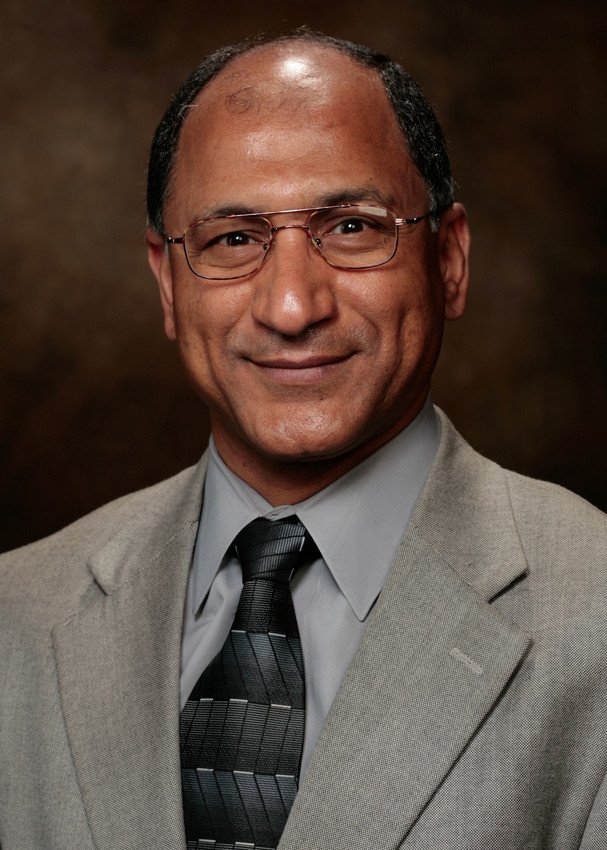
An electrical engineering professor received a $403,923 grant to develop and advance the analysis tools for high-frequency electronic components, integrated circuits and radiating systems used for detecting adversary objects such as planes and rockets for the U.S. Army. The technology also has implications for civilian 5G devices.
Samir El-Ghazaly, professor of electrical engineering, and his team received the grant from the Army Research Office, an element of the U.S. Army Combat Capabilities Development Command's Army Research Laboratory.
The research centers on better understanding how circuits behave near high-frequency electromagnetic waves. Having access to the extremely high-frequency bandwidth would allow data to be sent more quickly between devices.
The research is aimed at improving the effectiveness of structures, including phased array antennas, high-frequency transistors, amplifiers and millimeter-wave/optical systems, all of which are critical for the Army's communications and monitoring systems.
"The army, and the Department of Defense in general, are always interested in high-speed and high-power electronics to facilitate detecting foe objects and to enhance communications with ours," El-Ghazaly said.
Joe Qiu, program manager at the Army Research Office, said they hope to have new device models for designing extremely high frequency circuits.
"This research will develop new techniques for modeling transistor devices operating at extremely high frequencies like millimeter-wave and terahertz," Qiu said.
The research can also provide the tools to design better and faster personal items such as 5G devices.
"Our research will develop computer simulations for electron transport and electromagnetic-wave propagations inside high-speed transistors," El-Ghazaly said. "The tools will be used to design transistors that operate at higher frequencies to enable faster data communications. 5G needs a transistor that can process more data in a short time."
For this project, El-Ghazaly said high-speed computing, cleanrooms and the most up-to-date test equipment for electronic devices are crucial.
"The simulation tools to be developed will be computationally intensive, and would require faster computers," he said. "The simulations will enable the design of optimized transistors, and cleanrooms are needed to fabricate the transistors."
Testing will take place at the Engineering Research Center at the University of Arkansas and the Army Research Lab in Durham, North Carolina.
Topics
Contacts
Wendy Echeverria, multimedia specialist
Department of Electrical Engineering
479-575-3005, wechever@uark.edu
Nick DeMoss, director of communications
College of Engineering
479-575-5697, ndemoss@uark.edu